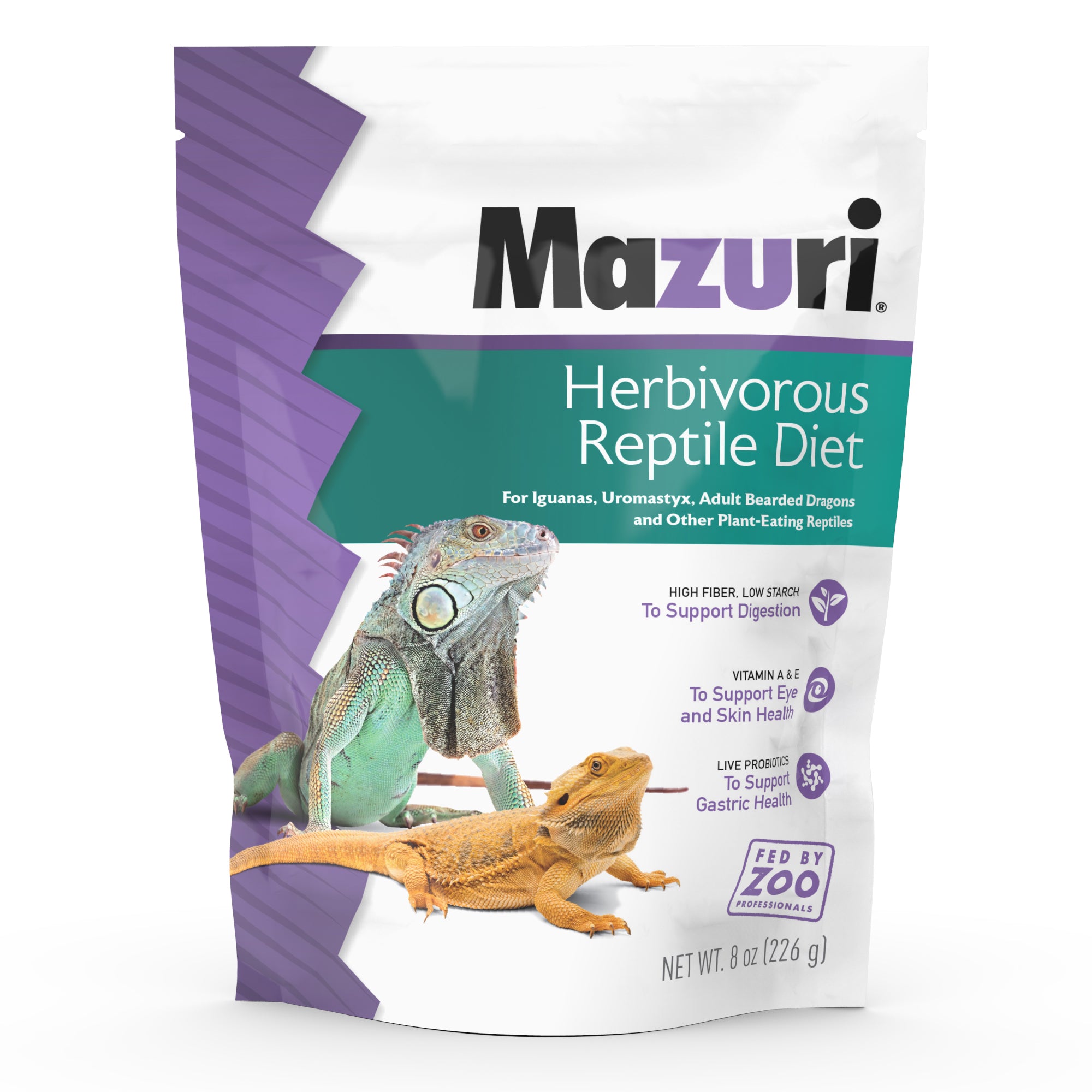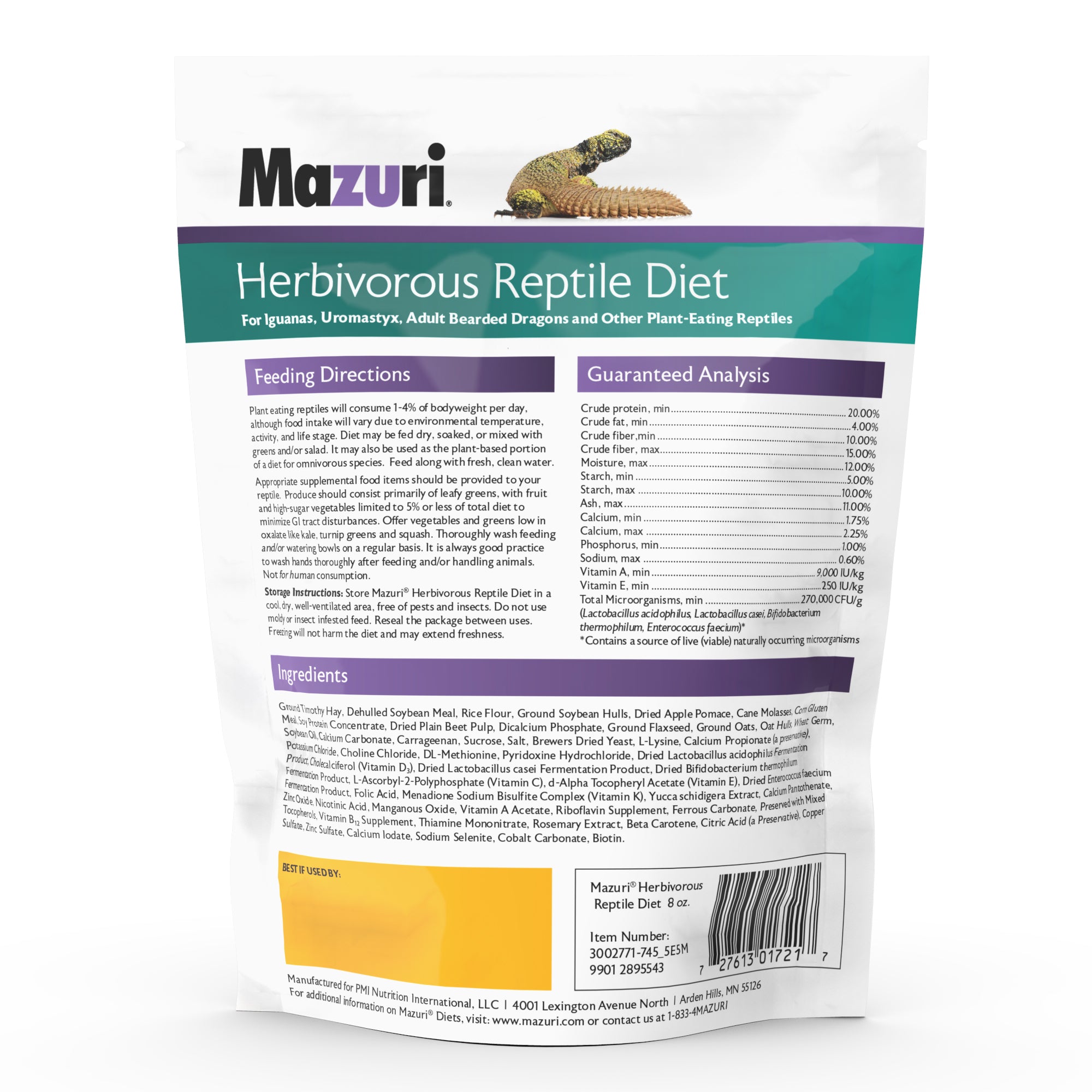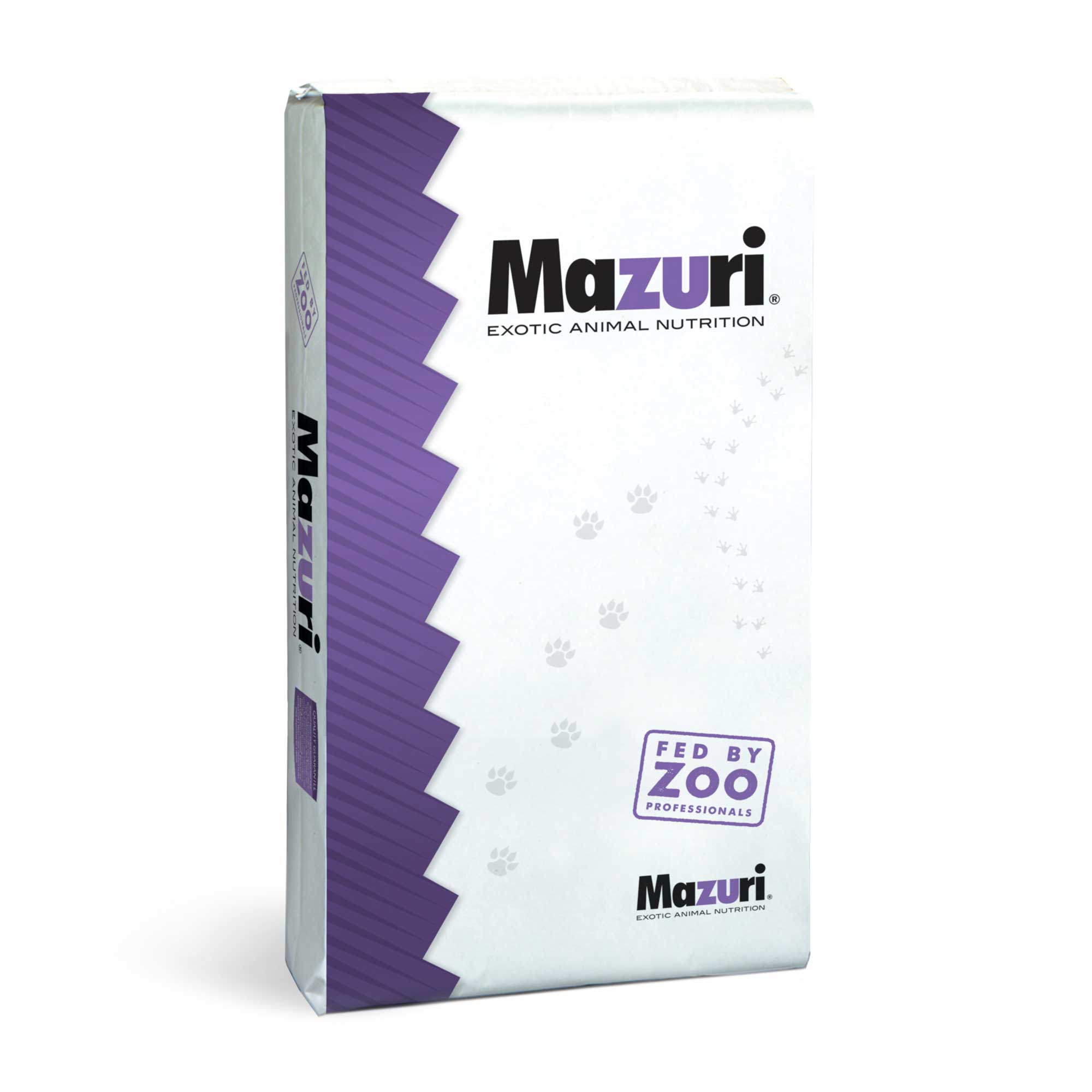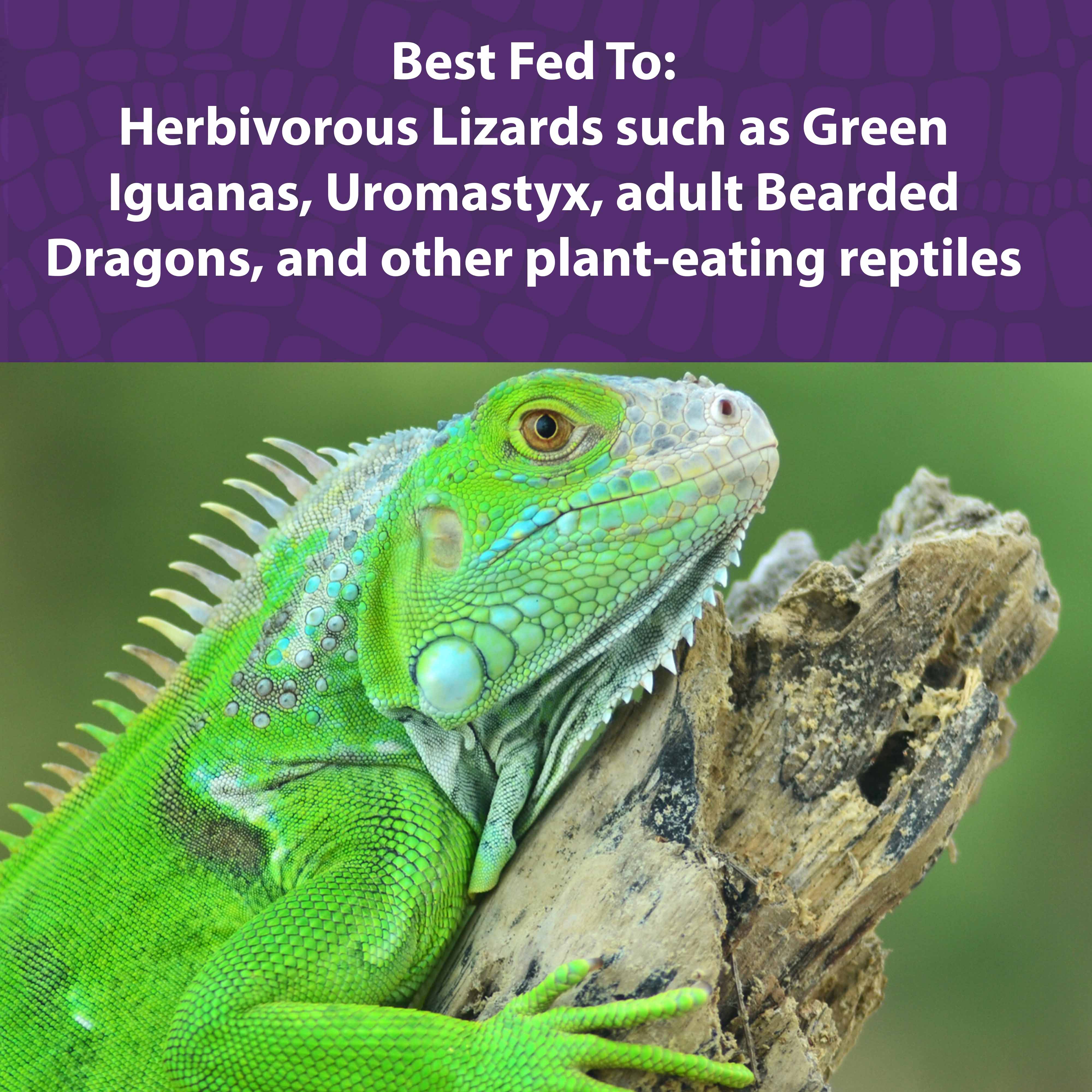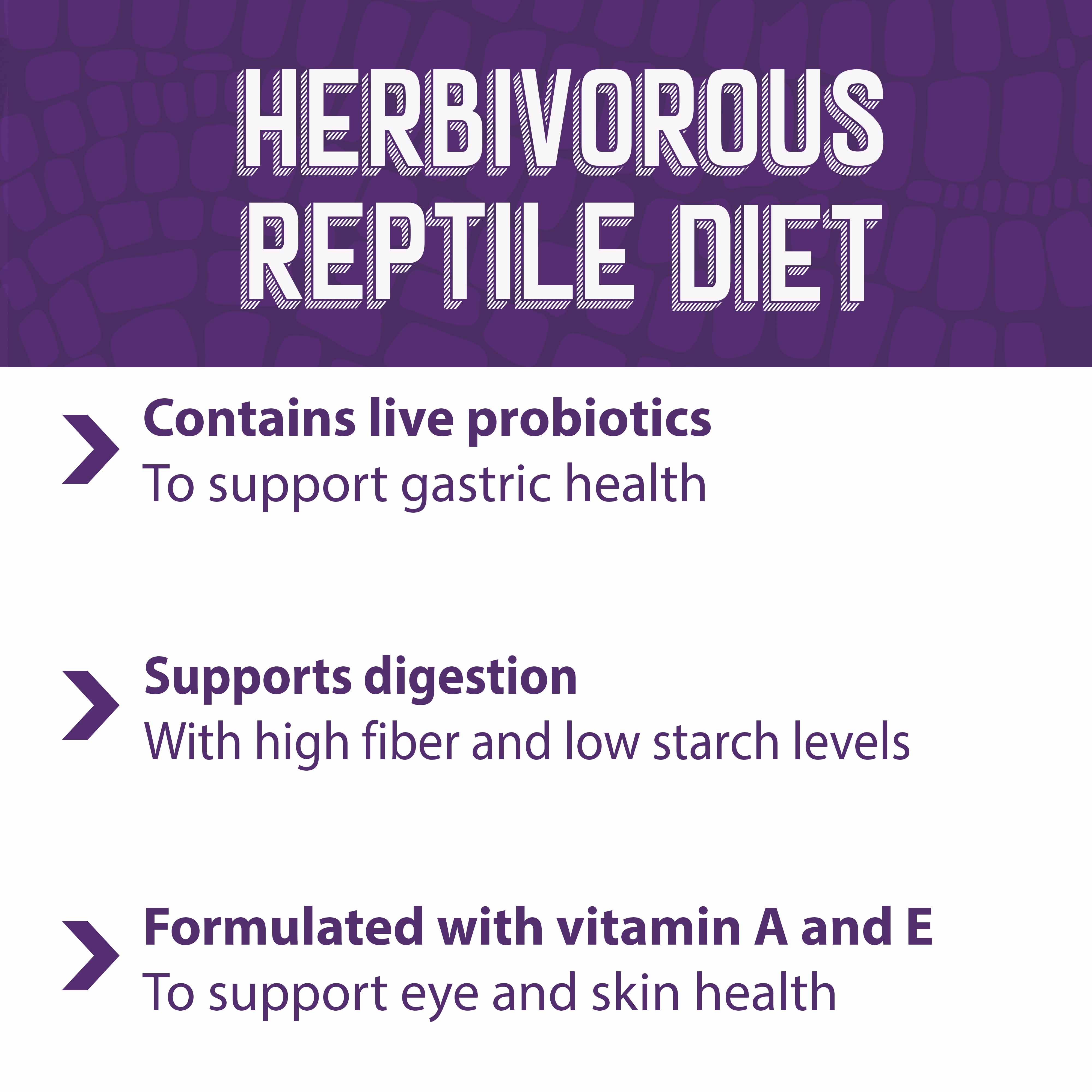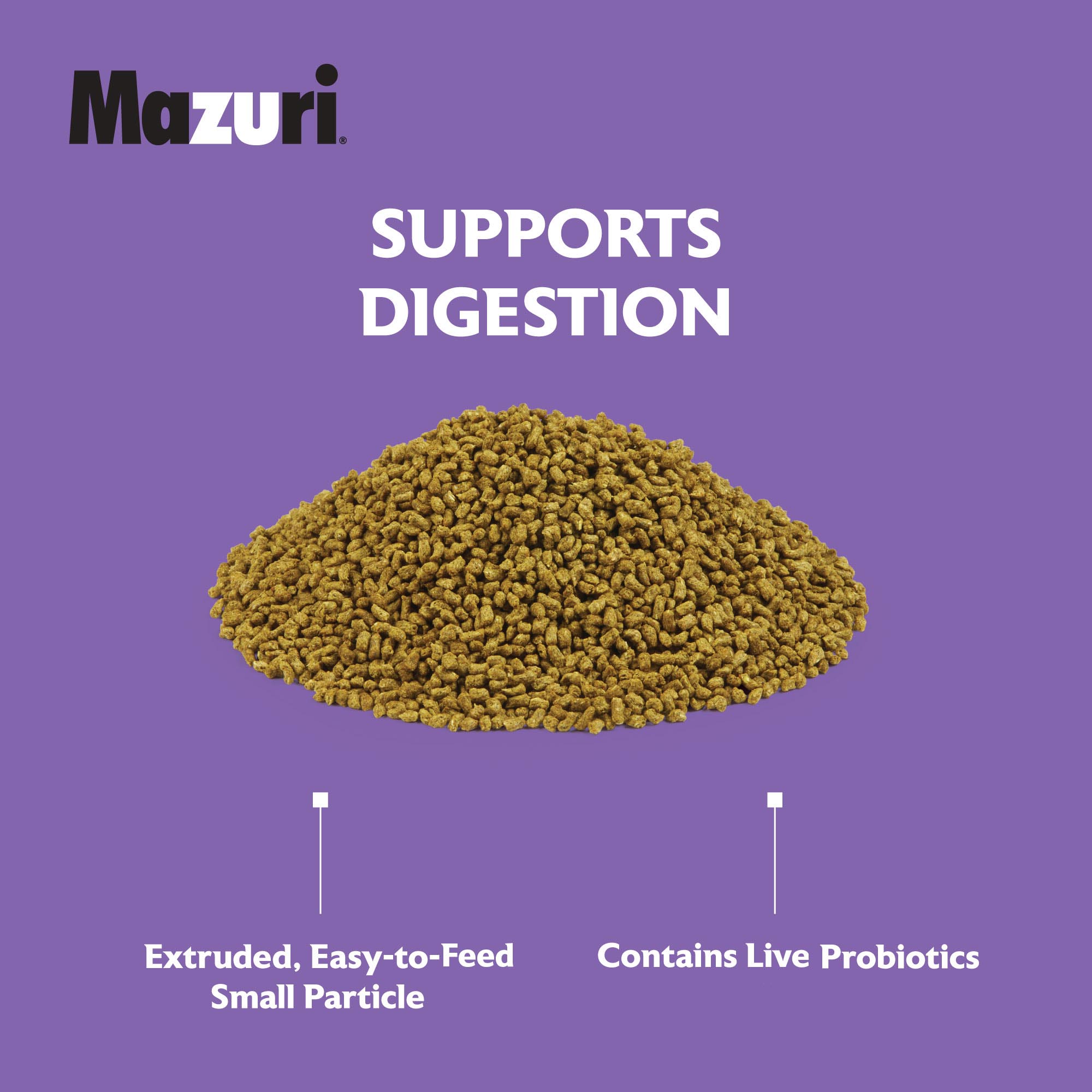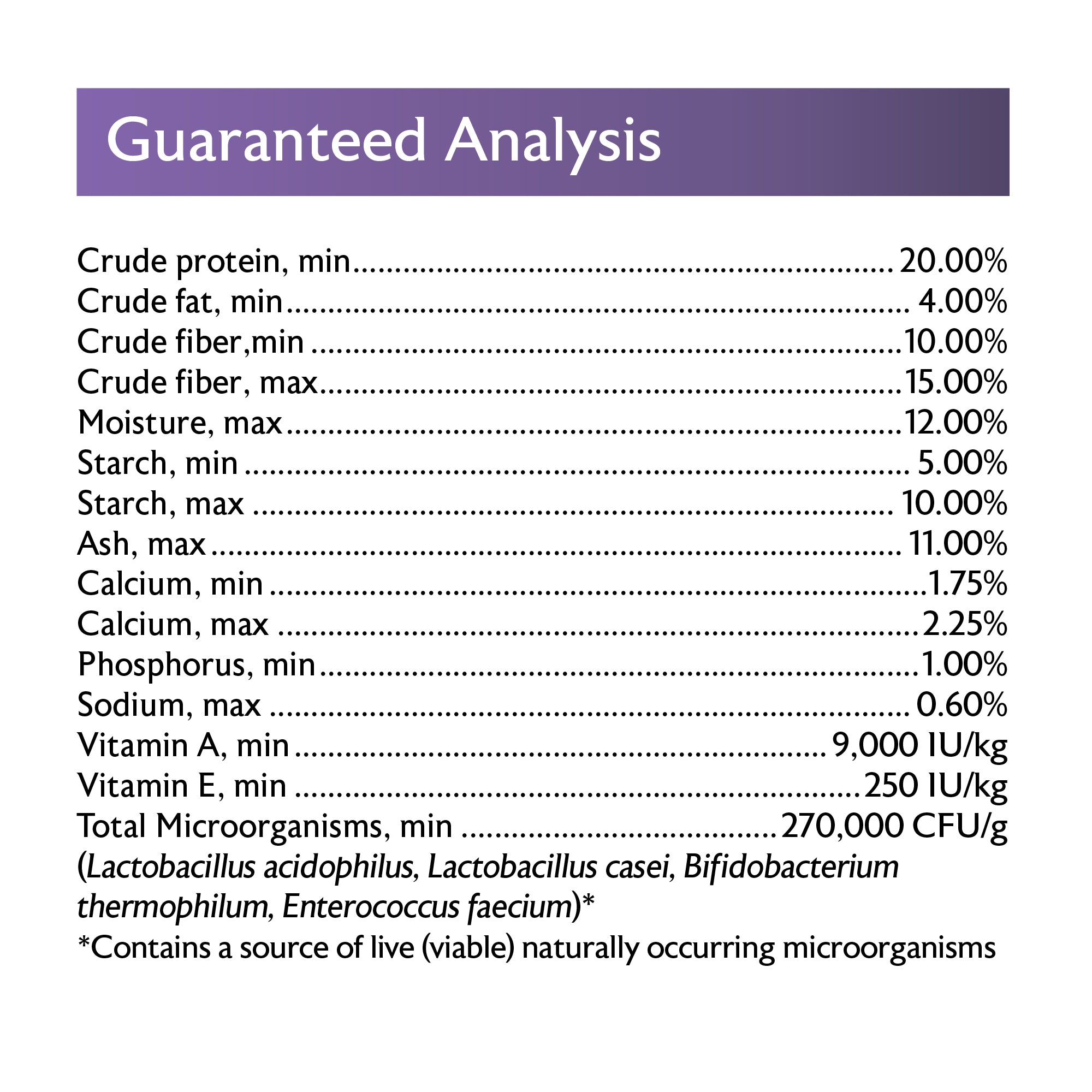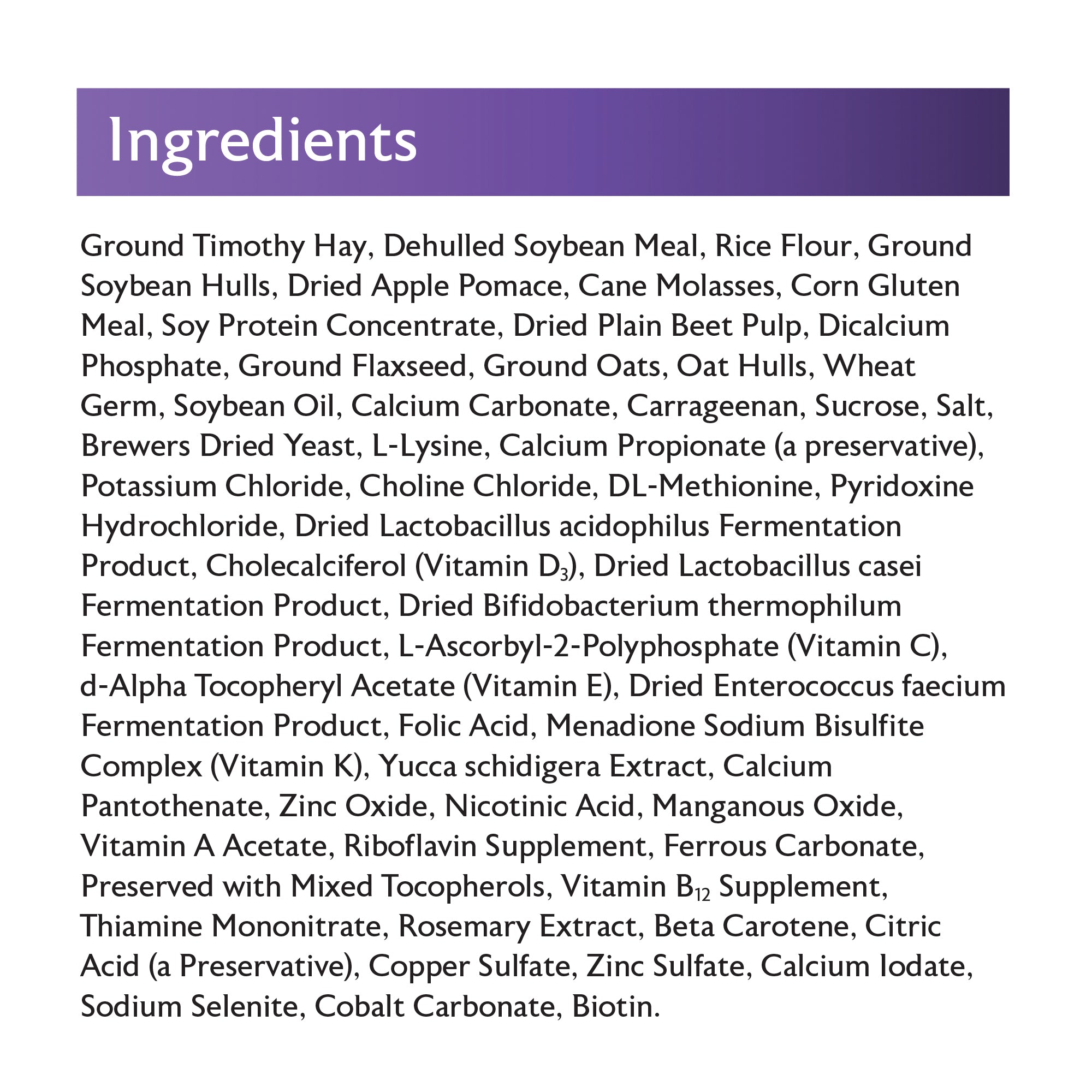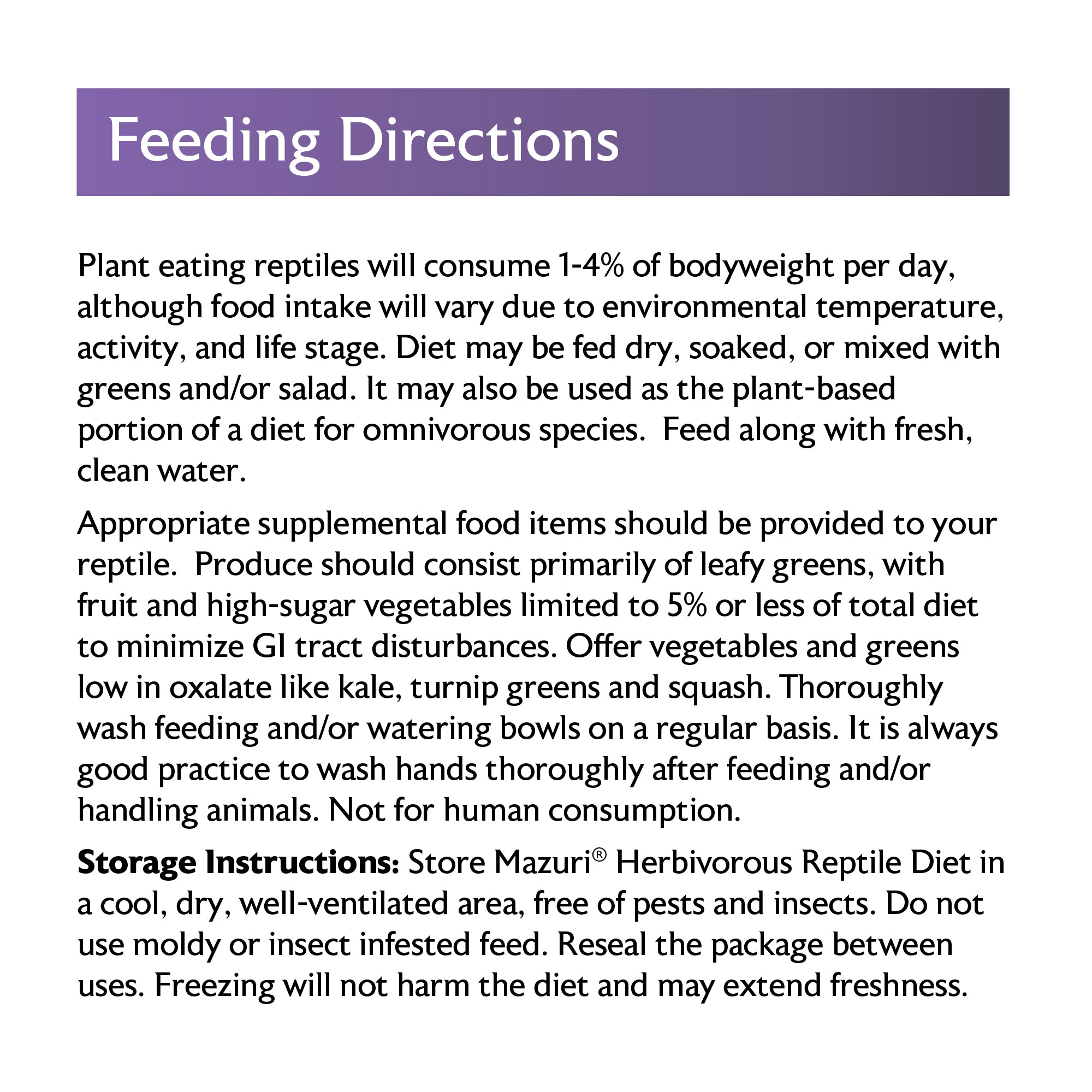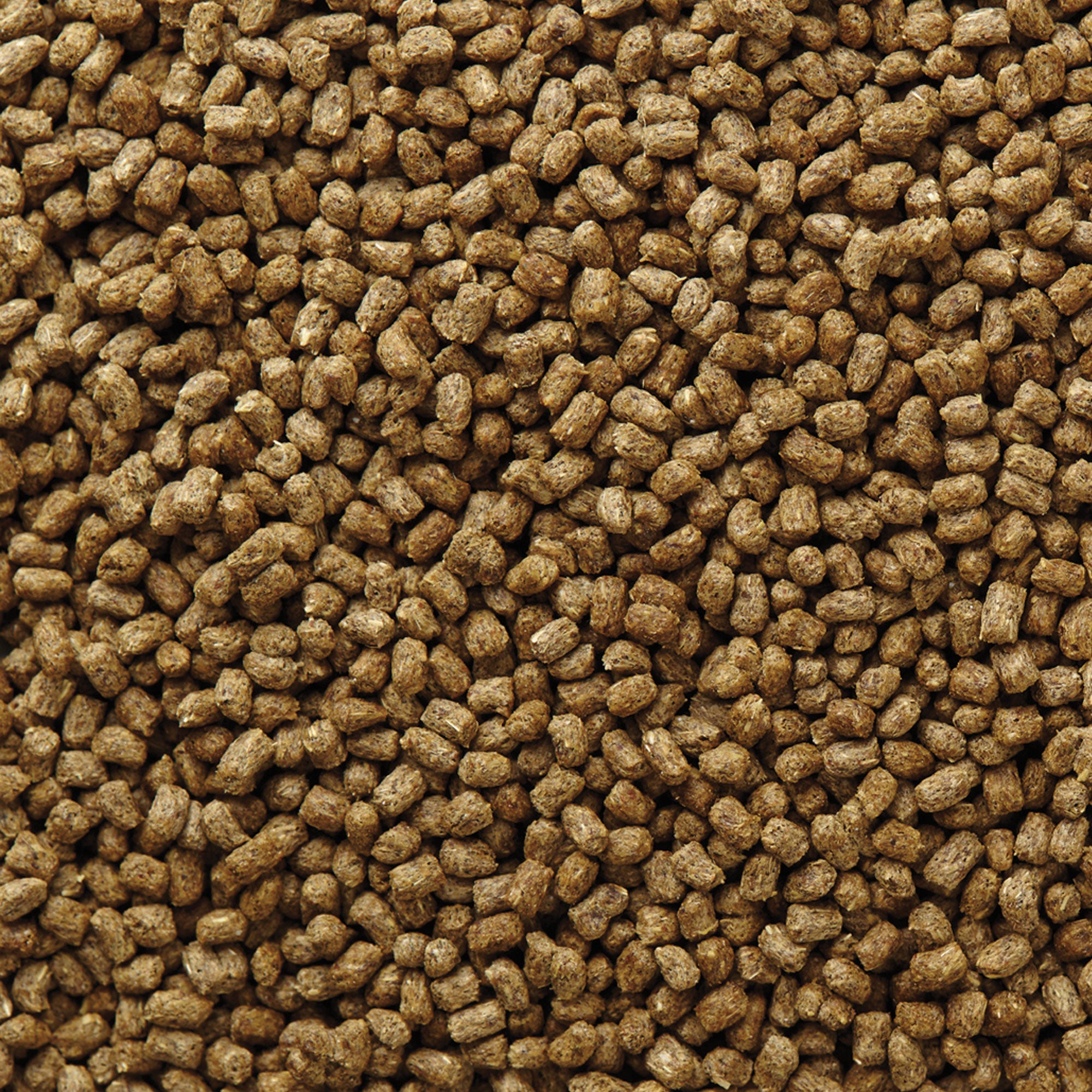Every exotic animal deserves the right nutrition
| Crude protein not less than Crude fat not less than Crude fiber not less than Crude fiber not more than Moisture not more than Starch not less than Starch not more than Ash not more than Calcium not less than Calcium not more than Phosphorus not less than Sodium not more than Vitamin A not less than Vitamin E not less than Total Microorganisms not less than |
20.0% 4.0% 10.0% 15.0% 12.0% 5.0% 10.0% 11.0% 1.75% 2.25% 1.0% 0.60% 9,000 IU/kg 250 IU/kg 270,000 CFU/g |
(Lactobacillus acidophilus, Lactobacillus casei, Bifidobacterium thermophilum, Enterococcus faecium)*
*Contains a source of live (viable) naturally occurring microorganisms
Ground Timothy Hay, Dehulled Soybean Meal, Rice Flour, Ground Soybean Hulls, Dried Apple Pomace, Cane Molasses, Corn Gluten Meal, Soy Protein Concentrate, Dried Plain Beet Pulp, Dicalcium Phosphate, Ground Flaxseed, Ground Oats, Oat Hulls, Wheat Germ, Soybean Oil, Calcium Carbonate, Carrageenan, Sucrose, Salt, Brewers Dried Yeast, L-Lysine, Calcium Propionate (a preservative), Potassium Chloride, Choline Chloride, DL-Methionine, Pyridoxine Hydrochloride, Dried Lactobacillus acidophilus Fermentation Product, Cholecalciferol (Vitamin D3), Dried Lactobacillus casei Fermentation Product, Dried Bifidobacterium thermophilum Fermentation Product, L-Ascorbyl-2-Polyphosphate (Vitamin C), d-Alpha Tocopheryl Acetate (Vitamin E), Dried Enterococcus faecium Fermentation Product, Folic Acid, Menadione Sodium Bisulfite Complex (Vitamin K), Yucca schidigera Extract, Calcium Pantothenate, Zinc Oxide, Nicotinic Acid, Manganous Oxide, Vitamin A Acetate, Riboflavin Supplement, Ferrous Carbonate, Preserved with Mixed Tocopherols, Vitamin B12 Supplement, Thiamine Mononitrate, Rosemary Extract, Beta Carotene, Citric Acid (a Preservative), Copper Sulfate, Zinc Sulfate, Calcium Iodate, Sodium Selenite, Cobalt Carbonate, Biotin.
- Plant eating reptiles will consume 1 – 4% of body weight per day, on a dry matter basis. Feed along with fresh, clean water.
- Feed consumption will vary with environmental temperatures, level of activity, and animal life stage.
- The diet may be fed dry, soaked, or mixed with greens and/or salad. It may be needed to soften the diet with water until animals become acclimated to the diet. If moistened, the diet should be replaced at least twice daily
- Appropriate supplemental food items should be provided to your reptile. Produce should consist primarily of leafy greens and vegetables low in oxalate like kale, turnip greens, and squash.
- Fruit or high sugar vegetables should be limited to 5% or less of the total diet to minimize GI tract disturbances.
- Always provide plenty of fresh, clean water. Thoroughly wash feed and water bowls on a regular basis. It is always good practice to wash hands thoroughly after feeding and/or handling animals. This diet is not for human consumption.
Storage Conditions
For best results, reseal the bag between uses or store contents of open paper sack in container with sealing lid. Store in a cool (75⁰F/24⁰C or colder), dry (approximately 50% RH) location free from rodents and insects. Do not offer moldy or insect-infested feed to animals as it may result in illness, performance loss or death. Freezing will not harm the diet and may extend freshness. Use within 1 year of bag manufacturing or "Best if Used By" date.
Ask Our Experts
Get nutrition advice you can trust from experts who understand the unique nutritional needs and behaviors of your exotic animals.
Get Advice